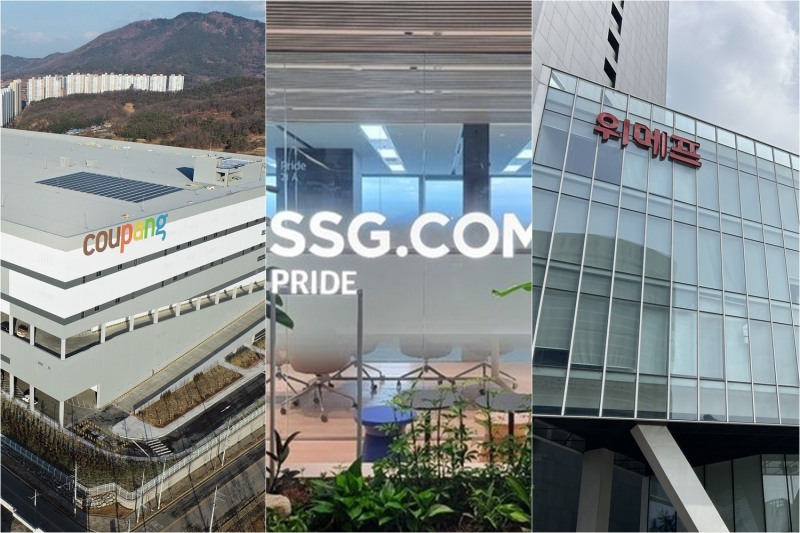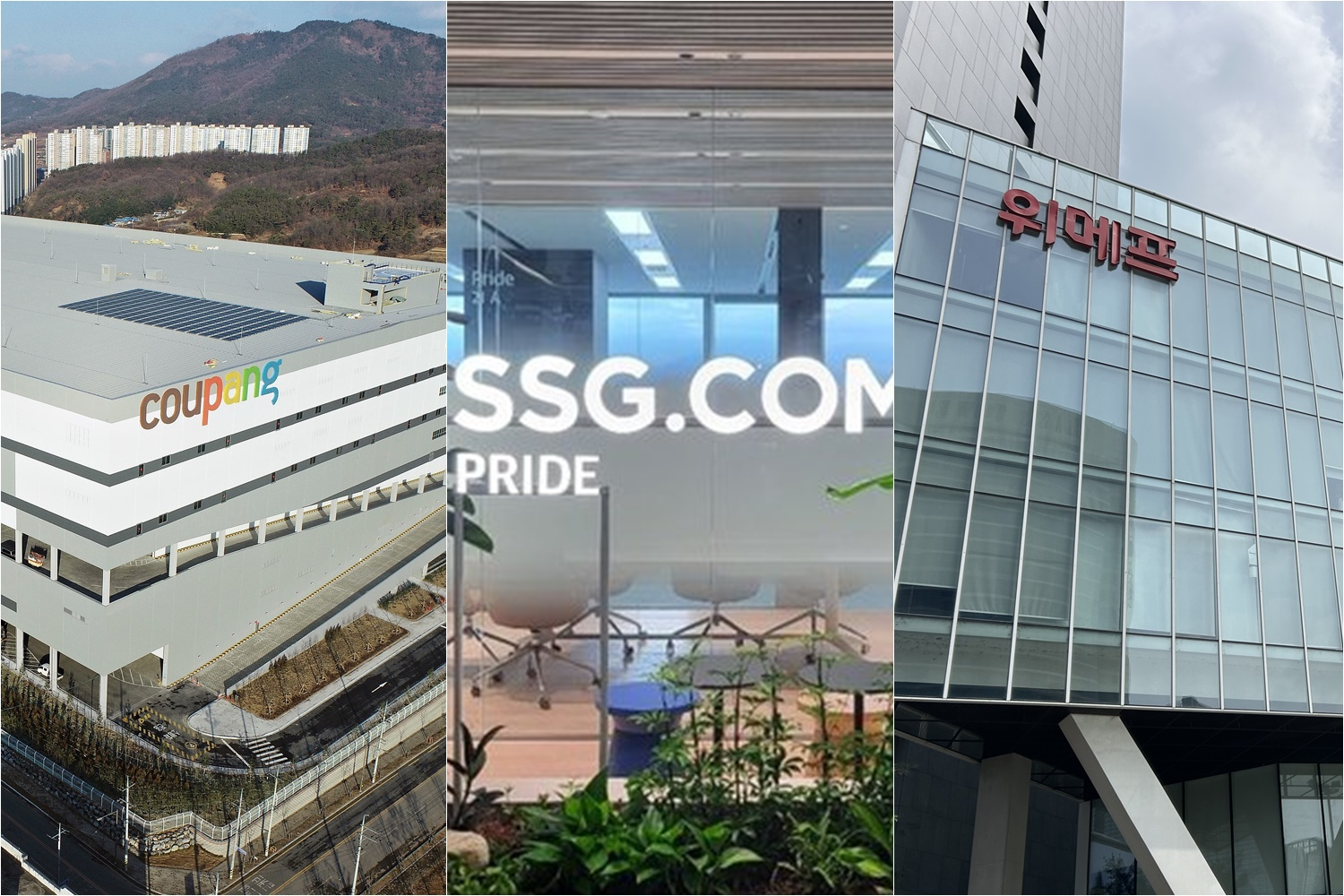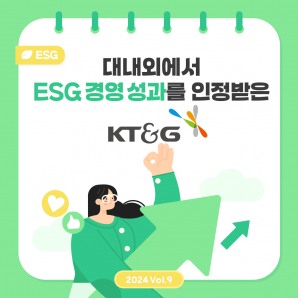
It's been an eventful year for e-commerce in 2024 /Photo courtesy: Coupang, SSG.com, WeMakePrice
이미지 확대보기Earlier this year, the offensive of C-commerce companies such as AliExpress, Temu, and Shein was fierce. Aliexpress, in particular, has captivated domestic consumers by boasting unbeatable prices with the help of China's huge capital. Coupang is also an e-commerce company that emphasizes the lowest prices, and anxiety grew as their competitive areas overlapped. Furthermore, AliExpress announced that it would invest approximately KRW 1.5 trillion in Korea over the next three years to build a logistics center, foreshadowing competition in logistics.
According to the e-commerce market trend analysis data released by data platform company IGA Works Mobile Index on the 26th, the cumulative number of new installations of Temu and AliExpress applications (apps) from the beginning of this year to last month was 18.04 million and 6.58 million, respectively. Combined, the two apps totaled 25.62 million, growing so fast that more than half of the Korean population has installed them.
However, considering that the number of consumers using C-commerce is small compared to the number of installations and the average purchase price is low, some say that it is far from enough to break Coupang’s momentum.
It was also embroiled in suspicions of manipulation of search rankings. In August, the Fair Trade Commission imposed a fine of KRW 162.8 billion on Coupang for manipulating the search ranking algorithm and giving preferential treatment to private brand (PB) products. At the same time, it issued a corrective order to “not engage in illegal acts such as algorithm manipulation.” Coupang was dissatisfied with this decision and filed an administrative lawsuit against the Fair Trade Commission in September to have the fine and corrective order canceled.
There was also an outlook that the increase in membership monthly fees would be a crisis factor for Coupang. It was predicted that the number of ‘de-Coupang’ members would increase as the price increased by 58% from KRW 4,990 to KRW 7,890. However, the number of consumers using Coupang actually increased. As of the third quarter of this year, the number of customers who purchased something from Coupang at least once was 22.5 million, an 11% increase from the same period last year (20.2 million) and an 800,000 increase from the second quarter (21.7 million).
Amidst all the noise, Coupang remained steadfast. It posted record sales of KRW 10.6 trillion in the third quarter of this year, and is on track to top KRW 40 trillion in annual sales.
SSG.com focused on reducing its deficit rather than outward growth this year. In the process, it experienced a change in leadership due to Chairman Chung Yong-jin's frequent personnel changes, and also experienced a conflict with financial investors (FIs) over the 'KRW 1 trillion put option (stock purchase right)'. The FI risk was resolved in November when Shinsegae Group attracted a new FI.
SSG.com's sales in the first quarter of 2024 was KRW 413.4 billion, down 1.9% from the same period a year earlier, and its operating loss was KRW 13.9 billion, down KRW 1.7 billion. In the second quarter, sales decreased by 7.5% to KRW 395.2 billion and operating loss improved by KRW 1.4 billion to KRW 16.9 billion. In the third quarter, sales decreased and profits improved. Sales decreased by 9.1% to KRW 390.5 billion and operating loss decreased by KRW 14.2 billion to KRW 16.5 billion. It is evaluated that this is a significant improvement even though one-time costs of KRW 7.6 billion due to personnel reductions such as voluntary retirement were reflected. The accumulated deficit up to the third quarter of this year was tallied at KRW 47.3 billion.
Gmarket is one of the places that was hit hard by the ‘TMON ·WeMakePrice’ incident. Gmarket, an open market operator, experienced unexpected bleeding while conducting marketing activities to support sellers who suffered damages from TMON and WeMakePrice. Since sellers are the core of open markets, Gmarket put a lot of effort into support measures to prevent sellers from leaving.
As a result, Gmarket reduced its operating loss in the first and second quarters of this year, but its deficit widened in the third quarter when the ‘TMON ·WeMakePrice’ incident broke out. Gmarket’s operating loss in the first quarter was KRW 8.5 billion, a KRW 2.4 billion decrease from the same period last year, and in the second quarter, it decreased by KRW 3.7 billion to KRW 7.6 billion. Then, in the third quarter, it increased to KRW 18 billion, widening the deficit by KRW 7.9 billion from the previous year.
In the midst of this, Shinsegae Group announced on the 26th that it would establish a joint venture with China’s Alibaba Group. Gmarket and AliExpress Korea will be incorporated as subsidiaries in the joint venture scheduled to be established next year. The plan is to enhance e-commerce competitiveness by utilizing Gmarket’s quality management and customer experience and Alibaba’s global network synergy.
LOTTE ON has been working hard to improve cost efficiency throughout this year. CEO Park Ik-jin, who was hired as the new head of LOTTE ON in December of last year, has been working hard to improve the company's organization. LOTTE ON moved its headquarters from Lotte World Tower in Jamsil, Seoul to Samseong-dong, Gangnam-gu in July of this year, and has implemented two rounds of voluntary retirement.
LOTTE ON, which has been losing about KRW 100 billion every year, has a cumulative deficit of KRW 500 billion. The cumulative deficit for the third quarter of this year was KRW 61.5 billion. Although the deficit has been decreasing every year, it is still large. LOTTE ON plans to focus on improving profitability by collaborating with retail affiliates within LOTTE Shopping and focusing on vertical services.
The general opinion is that the recent 'TMON · WeMakePrice' incident was triggered by the greed of Qoo10 Group CEO Koo Young-bae. Koo acquired Timon in 2022, Interpark Commerce later that year, and WeMakePrice in March of the following year, bringing three e-commerce companies under his wing in a short period of time. Koo's e-commerce shopping did not stop there. In February of this year, he acquired the American e-commerce company 'Wish', and a month later in March, he even purchased AK Plaza's online shopping mall, AK Mall. In just two years, he has acquired a whopping five e-commerce businesses.
This was the big picture of CEO Koo for the NASDAQ listing of QooExpress, a logistics subsidiary of Qoo10. In particular, in order to rapidly expand the transaction volume, he distributed indiscriminate discount coupons, etc., which further worsened the financial status of the acquired e-commerce companies. Although TMON and WeMakePrice were already in a state of capital erosion, CEO Koo ignored this and continued with reckless management.
As a result, a large-scale non-settlement situation occurred, and Mr. Koo became the target of national criticism. The damage from the ‘TMON-WeMakePrice’ incident amounted to KRW 1.595 trillion, and affected 500,000 people. TMON and WeMakePrice have entered rehabilitation procedures and are scheduled to resume operations early next year. The industry is skeptical about the normalization of TMON and WeMakePrice.
CEO Koo is accused of conspiring with Ryu Kwang-jin, CEO of TMON, and Ryu Hwa-hyun, CEO of WeMakePrice, to embezzle KRW 1.85 trillion worth of TMON and WeMakePrice seller settlement funds. He is also accused of embezzling KRW 50 billion in TMON and WeMakePrice gift certificate settlement funds under the pretext of acquisition money for an American e-commerce company, and of causing total of KRW 72.7 billion in damages to TMON, WeMakePrice, and Interpark Commerce by funneling money to affiliates for the purpose of listing its logistics subsidiary QooExpress on the NASDAQ. Prosecutors believe Mr. Koo used the settlement payments owed to TMON and WeMakePrice sellers as a personal coffer to fund Coo10's operations.
Park seulgi (seulgi@fntimes.com)




























![아파트, 저층이냐 고층이냐…실제 거주민 얘기 들어보니 [주기자의 시시비비]](https://cfnimage.commutil.kr/phpwas/restmb_setimgmake.php?pp=006&w=69&h=45&m=5&simg=2025041417333200489b372994c951245313551.jpg&nmt=18)

![[DQN] 보험사 작년 연봉킹 정몽윤 현대해상 회장…CEO 톱은 김중현 메리츠화재 대표](https://cfnimage.commutil.kr/phpwas/restmb_setimgmake.php?pp=006&w=69&h=45&m=5&simg=20250415224056007168a55064dd121010838206.jpg&nmt=18)
![하나은행, 소상공인 대출 과제···포용금융 확대 나설까 [은행권 소상공인 지원]](https://cfnimage.commutil.kr/phpwas/restmb_setimgmake.php?pp=006&w=69&h=45&m=5&simg=2025041516490008162b4a7c6999c145616778.jpg&nmt=18)
![하림 김홍국 회장 ‘수십억 투자 실패 임원을 회사의 자산으로’ [마음을 여는 인맥관리 52]](https://cfnimage.commutil.kr/phpwas/restmb_setimgmake.php?pp=006&w=69&h=45&m=5&simg=2025041611382602546c1c16452b012411124362.jpg&nmt=18)
![[나는 CFO다] SK하이닉스 김우현, SK그룹 AI 반도체 투자 책임 '특명’](https://cfnimage.commutil.kr/phpwas/restmb_setimgmake.php?pp=006&w=69&h=45&m=5&simg=202504151620520137174925877362115218260.jpg&nmt=18)
![정길호 OK저축은행 대표, NPL비율 한자릿수 대 진입…적극적 PF 부실 정리 결실 [2024 금융사 실적]](https://cfnimage.commutil.kr/phpwas/restmb_setimgmake.php?pp=006&w=69&h=45&m=5&simg=2021070421314008170dd55077bc2114205175155.jpg&nmt=18)















![[카드뉴스] KT&G ‘Global Jr. Committee’, 조직문화 혁신 방안 제언](https://cfnimage.commutil.kr/phpwas/restmb_setimgmake.php?pp=006&w=298&h=298&m=1&simg=202503261121571288de68fcbb3512411124362_0.png&nmt=18)


![[카드뉴스] 국립생태원과 함께 환경보호 활동 강화하는 KT&G](https://cfnimage.commutil.kr/phpwas/restmb_setimgmake.php?pp=006&w=298&h=298&m=1&simg=202403221529138957c1c16452b0175114235199_0.png&nmt=18)
![[카드뉴스] 신생아 특례 대출 조건, 한도, 금리, 신청방법 등 총정리...연 1%대, 최대 5억](https://cfnimage.commutil.kr/phpwas/restmb_setimgmake.php?pp=006&w=298&h=298&m=1&simg=20240131105228940de68fcbb35175114235199_0.jpg&nmt=18)
![[신간] 리빌딩 코리아 - 피크 코리아 극복을 위한 생산성 주도 성장 전략](https://cfnimage.commutil.kr/phpwas/restmb_setimgmake.php?pp=006&w=81&h=123&m=5&simg=2025032814555807705f8caa4a5ce12411124362.jpg&nmt=18)
![[신간] 지속 가능 경영, 보고와 검증](https://cfnimage.commutil.kr/phpwas/restmb_setimgmake.php?pp=006&w=81&h=123&m=5&simg=2025011710043006774f8caa4a5ce12411124362.jpg&nmt=18)
![[서평] 추세 매매의 대가들...추세추종 투자전략의 대가 14인 인터뷰](https://cfnimage.commutil.kr/phpwas/restmb_setimgmake.php?pp=006&w=81&h=123&m=5&simg=2023102410444004986c1c16452b0175114235199.jpg&nmt=18)

![[신간] 똑똑한 금융생활...건전한 투자와 건강한 재무설계 지침서](https://cfnimage.commutil.kr/phpwas/restmb_setimgmake.php?pp=006&w=81&h=123&m=5&simg=2025031015443705043c1c16452b012411124362.jpg&nmt=18)

![[카드뉴스] KT&G ‘Global Jr. Committee’, 조직문화 혁신 방안 제언](https://cfnimage.commutil.kr/phpwas/restmb_setimgmake.php?pp=006&w=89&h=45&m=1&simg=202503261121571288de68fcbb3512411124362_0.png&nmt=18)
![[AD] 기아, 혁신적 콤팩트 SUV ‘시로스’ 세계 최초 공개](https://cfnimage.commutil.kr/phpwas/restmb_setimgmake.php?pp=006&w=89&h=45&m=1&simg=2024123113461807771f9c516e42f12411124362.jpg&nmt=18)
![[AD] 아이오닉5 '최고 고도차 주행 전기차' 기네스북 올랐다...압도적 전기차 입증](https://cfnimage.commutil.kr/phpwas/restmb_setimgmake.php?pp=006&w=89&h=45&m=1&simg=2024123113204707739f9c516e42f12411124362.jpg&nmt=18)




